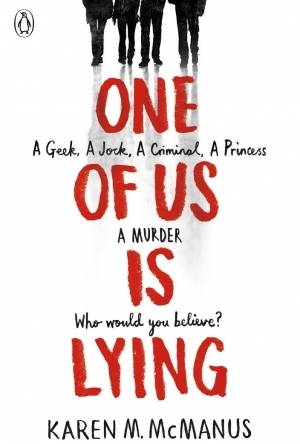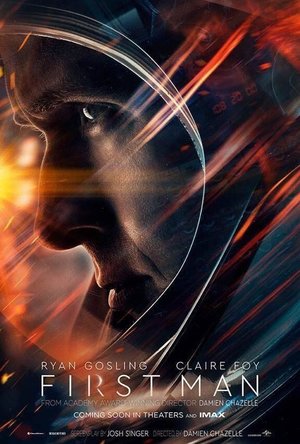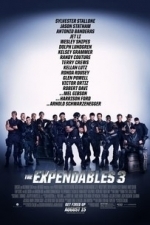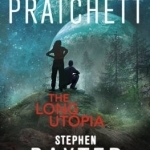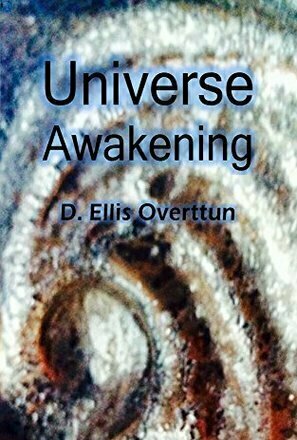Kristin (149 KP) rated When the Siren Calls (The Siren, #1) in Books
Dec 7, 2018
Infidelity, fraud, and just plain ol' lying: That's what Julian "Jay" Brooke is all about. Whether he's running around with his mistress Lucy, trying to get into the pants of assistant Gina or the married Isobel, or selling timeshares at inflated prices to the filthy rich, Jay always has something up his sleeve. Can he get away with it all, or is it just a house of cards, waiting to come down?
Isobel Roberts is a married woman, on vacation with her husband in Morocco when she first encounters Jay, who saves her from an unsightly development in the market. From that point on, she thinks of him, her feelings growing into more than she's ready for, or so she thinks. What will she choose to do: Stay committed to her husband, or stray into the arms (and bed) of another (married) man?
There are so many characters in this book whose stories grab your attention (aside from Jay and Isobel). Lucy's feisty in trying to get her way in her relationship with Jay; Isobel's friend Maria is the no-nonsense birdie on Isobel's shoulder, helping her along throughout her decisions, whether good or bad; Andy Skinner is always trying to figure out just what Jay has pulled him into with this timeshare business in Tuscany, and whether or not he's getting screwed in the process; and so many more. With all the people involved, how long will it take for Jay's lies to come to the surface, or will he get away with everything?
Honestly, almost from the jump I wanted Jay to get caught at something, whether it was the infidelity, the fraud in Tuscany, just something. There's so many people in the world just like him, who think they're above everything and everyone and nothing can touch them, and I REALLY wanted someone to knock him down a peg (or several). There's schemes going on, underhanded business deals, price-gouging against "holiday tourists", and so much more. For the life of me, I wanted to just scream at all the characters to get them to catch onto it all.
The reason I dropped to 4 stars is because I got a little confused in the beginning as to the timeline, as weeks/months would pass between chapters, which bounce back and forth between characters, so I had a hard time keeping track for a little while. However, the time frame slows down, and it's easier to tell what's going on after the first quarter or so of the story.
Now, all that being said, DOES Jay ever get caught? Do his lies catch up to him, either in his personal or professional life, or does he get away scot-free? You'll have to read and see! =)
4 stars
Heather Cranmer (2721 KP) rated One of us is Lying in Books
Sep 6, 2018
The pacing for One of Us Is Lying is fantastic. I was fully immersed in the story as soon as I read the first sentence. Never did the pacing falter. It was quick and enjoyable. This was one of those books where I wished real life could have left me alone so I could have finished it in one sitting.
I found the plot for One of Us Is Lying to be very interesting. I enjoyed how it kind of felt like The Breakfast Club movie, but it was much much more interesting. It was good to see a group of kids from different backgrounds coming together instead of blaming each other for once. Usually in young adult novels, there's so much bickering. That wasn't the case in One of Us Is Lying. There are a few plot twists. I did figure out who the murderer was very early in the book. I felt like it was kind of obvious. However, there was one major plot twist I didn't predict. I feel like this book does tie up all loose ends.
The world building was done very well. I thought the author, Karen M. McManus, did a great job in writing about a high school setting as well as a criminal setting. Everything felt very real. I felt like I was one of the teens being accused of murder. Everything felt personal to me which is definitely a good thing. I've never been interrogated by the police, but McManus made me feel like I was in the interrogation room each time was of the teens was questioned. I can't fault the world building one bit. It is solid.
I loved the characters in One of Us is Lying. I also loved how diverse a lot of the characters were. I think my favorite character, overall, was Cooper. Maybe it's because we're both southern, but I just loved him. He seemed so caring and sweet. I also enjoyed the other characters of Nate, Bronwyn, and Addy as well. It was nice to see the homecoming princess as not just a one dimensional person. All of the characters were thoroughly fleshed out. Character development was spot on.
Trigger warnings include death, drugs, some violence, and swearing.
All in all, One of Us Is Lying was such a fantastic read. I enjoyed it more than I thought I was going to. It's got a great cast of characters, an interesting plot, and the world building is fantastic. I would definitely recommend One of Us Is Lying by Karen M. McManus to everyone aged 14+.

Ravensburger Puzzle - the jigsaw collection
Games and Entertainment
App
The best jigsaw puzzle app for iPhone and iPad - of course from Ravensburger. A huge selection of...

Dexteria VPP - Fine Motor Skill Development
Education and Medical
App
Dexteria VPP is the multi-user version of our market leading app Dexteria, and offers the best price...

Leadership
Marian Iszatt-White and Christopher Saunders
Book
Written by an author team from one of Europe's leading management schools, Leadership combines...

Leading Strategic Change in an Era of Healthcare Transformation: 2016
Book
This book focuses on how to lead transformative and strategic change in the healthcare industry in...
Gareth von Kallenbach (980 KP) rated First Man (2018) in Movies
Jul 2, 2019
First Man by Universal Pictures and directed by Damien Chazelle (La La Land / Whiplash) takes us on the incredible journey of Neil Armstrong (Ryan Gosling) becoming the first man on the moon. The movie covers almost a decade of time, starting with the first scene of Neil Armstrong in a high-altitude test flight in his X-15 to of course the pivotal moment when he first steps foot on the moon. It’s a lot to pack into a film that only runs a bit over 2 hours (138 minutes to be precise) so even though it doesn’t go too deep into any particular event, it shows just enough of the journey to be very captivating.
The cinematography is both beautiful and a bit unsettling at the same time. It’s grainy and shaky, looking as though the film itself was shot in the same era that it portrays. There is a blend of new footage and actual footage that is practically impossible to distinguish from each other. There were many times throughout the film where I questioned whether the footage was actually pulled from original film, or simply filmed to appear that it was. Viewers who are sensitive to shaky camera sequences (where it looks like it is being filmed using an old 8mm handheld movie camera) or for those who prefer a crisper image of grainy footage might be slightly turned off, however I found the mix of both old and new incredibly interesting and it made all of the characters appear as if they were part of an archived documentary, instead of an entirely new film.
The video wasn’t the only mix that is present in the film as there is also a blend of old and new audio footage. They even used the original recording of the moon landing and seamlessly blended Ryan Gosling’s voice in where Neil Armstrong would have originally been heard. The mix of audio footage was done so flawlessly throughout the film that you may even start to believe that that Ryan Gosling and Neil Armstrong are one-in-the-same person.
Since the movie is based on Neil Armstrong himself and not directly on the space race, a lot of other critical events are simply introduced and then gone in a flash. The time jumps in the movie can be a bit confusing as well. For example, there are scenes where his wife Janet (Claire Foy) is pregnant one minute and the very next minute she has a young son running around. Years pass by in minutes in this film, even for crucial events. Another example is when we are introduced to the young astronauts training for the Gemini flights and then a short time later they are ready to complete their missions. Considering these astronauts were an important part of history, it would have been nice to see a little bit more of their development. The best way to describe these hasty time jumps is that they play out a lot like reading a Wikipedia article, the key points are shown and described in detail, but any of the character development (outside of Neil and his wife) is largely missing. That’s not to say that there aren’t other characters in the film that are important, they just aren’t the focus of the film.
If you are looking for a film that is action oriented like Apollo 13 or The Right Stuff, then you may be a bit disappointed in First Man as it is definitely more like a documentary than a Hollywood blockbuster. If you are however interested in the history of Neil Armstrong and his trials and tribulations on his way to the first moon landing, then you will be in for an incredible journey. Even though First Man seems more at home on the History Channel than Netflix, that’s what makes it such an interesting and enjoyable movie. I thoroughly enjoyed First Man and it’s excellent blend of history and personal storytelling makes it a great movie to see with the whole family.
Gareth von Kallenbach (980 KP) rated The Expendables 3 (2014) in Movies
Jun 19, 2019
In “The Expendables 3” Sylvester Stallone, Arnold Schwarzenegger, and company lead the all star cast with a mix of old and new in order to provide a more diverse yet not entirely satisfying third act of the retro action series.
Barney (Sylvester Stallone), leads the remains of his crew on a daring raid as the film opens to free one of his former members played by Wesley Snipes. The action is as intense as ever, but thanks to a PG-13 rating, is much more subdued than we have come to expect from the series.
As Barney and crew contend with age and injuries, it is leaned that a person long thought dead has become one of the biggest arms dealers in the world and has his own private army. What makes matters worse is that said dealer (Mel Gibson), has a very complicated history with Barney and The Expendables and as such this mission is very personal when he is hired to bring him to justice.
With a new crew in place, Barney sets out to settle the score, but soon finds out that complications arise, forcing the old and new crew to unite in a battle against overwhelming odds.
If this seems to be a fairly simplistic overview your right, as this is about as complex as this film gets. There is some effort to show chemistry between the players but backstories and character development are for the most part left out. Gibson on the other hand brings a great new dimension to the film as the backstory to his character as well as his motivations were very interesting and kept my attention in what otherwise could come off as a cartoony villain role.
Harrison Ford replaces Bruce Willis as their C.I.A. contact and brings gruff charm to the role of Drummer and seems to delight in being in on the action as do the new and returning cast.
The biggest issue was that it seemed more retrained than what we expect from the series. Part 2 had the epic airport battle and a great fistacuff finale. Part 3 lacks the intensity and urgency of previous films and the cast appears to be going through the motions, just happy for one more ride.
Stallone reportedly mentioned he had ideas for a 4th film which would be fine with me, but they need to get away from this PG 13 lite version and bring the swaggering, over the top action of the previous films back and fast as with an aging cast, this film seemed very out of date and lacking the retro nostalgia.
That being said, if you want some no-brainer fun, it is worthy of checking out.
http://sknr.net/2014/08/15/expendables-3/
Phil Leader (619 KP) rated The Long Utopia in Books
Nov 20, 2019
The second book, The Long War explored the political theme further with the superpowers attempting to control the equivalent populations on the other Earths - and mostly meeting resistance to any governance at all. It also introduced the concept of the Next, a super intelligent sub-species of humanity.
The third book, The Long Mars had further incredible iterations of Earth on display and also did the same thing for Mars on a quest to discover a material to use to make a space elevator. The Next also started to organise and to separate themselves from the rest of humanity.
Each of these took the original concept and gave us more interesting worlds and lifeforms. Although the law of diminishing returns was starting to bite - Earth fatigue if you like - the main interest was in seeing what new ideas the authors could wrestle for each new Earth or Mars.
That is where this book fails. It is almost exclusively interested in only one copy of Earth, which comes under direct threat. All the usual suspects - Joshua, Sally, Lobsang and the Next must join forces to prevent a catastrophe threatening the whole Long Earth. There is also a sub-plot involving Joshua's antecedents which although interesting in itself is essentially a Long Earth short story of no relevance to the rest of the plot.
Whereas the previous books had a sense of wonder at each world, this loses that completely. It is in fact a completely standard science fiction story and probably would have been better told as a stand alone story rather than being shoe-horned into the Long Earth concept, which doesn't actually add anything interesting to it. It reads very much like Baxter wanted to write a story about a Dyson motor and as he was contracted to write a Long Earth novel, that's what was used. Unfortunately even this story is not well told with stilted and flaccid dialogue, zero character development and no dramatic tension at all. It was a real struggle to read in places, there is no zip or flow to the story or writing.
Various bits of the plot don't make a great deal of sense and the ending is very lame indeed with the chain of Long Earth worlds being essentially fixed by just thinking about it. The Next decide that Stan Berg, a newly discovered one of their kind, is the only one to 'fix' this despite basically no contact. They are supposed to be super intelligent and think many moves ahead but this just struck me as absurd.
Overall, I would only suggest that Long Earth completists read this. Those who enjoy the Long Earth for its diversity and novel concepts would be better off leaving this one on the shelf.
Phil Leader (619 KP) rated Universe: Awakening (Terra Nova #1) in Books
Nov 27, 2019
Fast forward 100 years. The probes sent out by DEUS have gone dark one by one, sending potentially troubling data before they do so. Ja'el is showing signs of improvement to his counsellor Auberon. With the real danger that the perceived success of DEUS - the basis of her power - may unravel Odessa brings Auberon under her control to manage Ja'el's recovery.
The rest of the book follows Auberon's (and his assigned Guardians, Mich'ael and Gab'riel) as they realise that there may be a personal motive in Odessa's desire to see Ja'el rehabilited, and that they may be 'surplus to requirements' once he is.
Overttun aims high with this book; there are a lot of concepts around not only technology but future society and political attitudes. There is also a subplot around the more advanced ruling class and the far more numerous worker humans which is used to good effect to highlight social injustices of all kinds. On whole the premise is delivered well, although there are a few lengthy exposition passages, particularly early in the book, which do spoil the flow and are probably not actually required.
What is striking is the character development. All the main characters learn some lessons along the way, Auberon in particular discovering that far from being a meek and unassuming mid-rank civil servant is capable of far more, both mentally and physically, than he ever thought possible. His metaphorical awakening mirrors nicely Ja'el's rather more literal awakening.
As the first part of an intended series of books, this volume necessarily does a lot of work setting up the characters and situations and leaves a lot of threads hanging to be picked up later but there is closure around the main plots and character arcs within this part of the story.
Although this is going to be labelled as a science fiction novel because of the post-human, technological and space exploration aspects at its heart it is a political thriller. Given this and that it is chock full of interesting ideas it bears careful reading without any preconceived expectations. But above all this is an interesting read following a set of well-designed characters in a fully developed world.
With its length and depth this is not a light read but the writing style is straighforward and clear whilst still being fully descriptive and immersive which makes it a pleasure to pick it up and see what Auberon and associates will do next.
The characters and the world they inhabit are something the author is clearly proud of - and he is right to be. This first instalment bodes well for the rest of the series.

